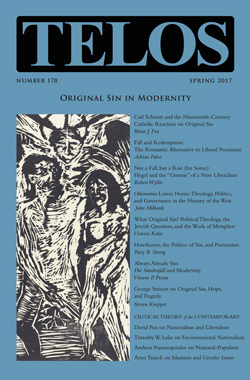The summer of 2015 may prove to have been a decisive moment in European and global history. The dramatic arrival of hundreds of thousands of people during a relatively short period of time, traveling via the Balkans and Hungary and toward Austria, Germany, Sweden, and other high-income European countries, will be forever remembered by those who witnessed these events as they unfolded. The swift arrival of 1.3 million asylum seekers, predominantly young men from the hotspots of global conflicts, like Syria, Afghanistan, and Iraq, took the political systems of several European countries, and the European Union itself, by surprise.
|
This article summarizes a forthcoming analysis by the author under the tile Islamism, Arab Spring and the Future of Democracy: Developing a World Values Perspective, under contract at Springer Publishers, N.Y. Sixteen years ago, on a bright and beautiful September morning in New York, Islamist terror against the West reached a new stage. The attacks, which began at 8:46 local time, killed 2,996 victims. To equate “Muslims” with terrorism is unjust—just recall the heroic example of the Jordanian Air Force pilot Muath Safi Yousef Al-Kasasbeh, who, on January 3, 2015, was burnt alive by ISIS after his F-16 crashed during an operation across ISIS territory. He, too, was a believing Muslim and a Jordanian patriot. “Muslims” today also include the 9 percent of the Arab population who, according to data from the ACRPS Institute in Qatar, advocate the diplomatic recognition of Israel, despite the prevailing climate of anti-Israeli hysteria. This article develops new empirical perspectives on the growing gender policy and gender role clash of civilizations now looming ahead in Western countries. The very same European governments that welcomed hundreds of thousands of migrants from countries with what the Muslim feminist Ziba Mir-Hosseini called “compulsory dress codes, gender segregation, and the revival of cruel punishments and outdated patriarchal and tribal models of social relations,” are untiringly promoting gender mainstreaming, which is now a top priority for European Union policymakers. Western feminism is at a turning point. Will it share with large sections of the green and left political currents in the West the cowardly silence about the threat of Islamist totalitarianism and terrorism, or will it develop solidarity with Muslim feminism? In addition to its main focus on original sin in modernity, Telos 178 (Spring 2017) features a special section of topical writing, introduced here by Russell A. Berman, that continues our ongoing commitment to setting forth a critical theory of the contemporary. Telos 178 is now available for purchase in our store.
Mina Ahadi is an Iranian exile, living in Germany. She opposed the Shah as well as Khomeini. In 1990 she fled to the West. An adamant secularist, critical of all religion and therefore an opponent of Islamist politics, she does not appear to distinguish between “Islamic” and “Islamist” in her prose. She identifies herself as a communist, she is a leader in the “Central Committee of Former Muslims,” and she is a principled defender of human rights. In two recent open letters, she stakes out positions that not only provide insight into contemporary German political discussions but that are directly relevant to U.S. debates as well. |
||||
|
Telos Press Publishing · PO Box 811 · Candor, NY 13743 · Phone: 212-228-6479 Privacy Policy · Data Protection Copyright © 2024 Telos Press Publishing · All Rights Reserved |
||||








